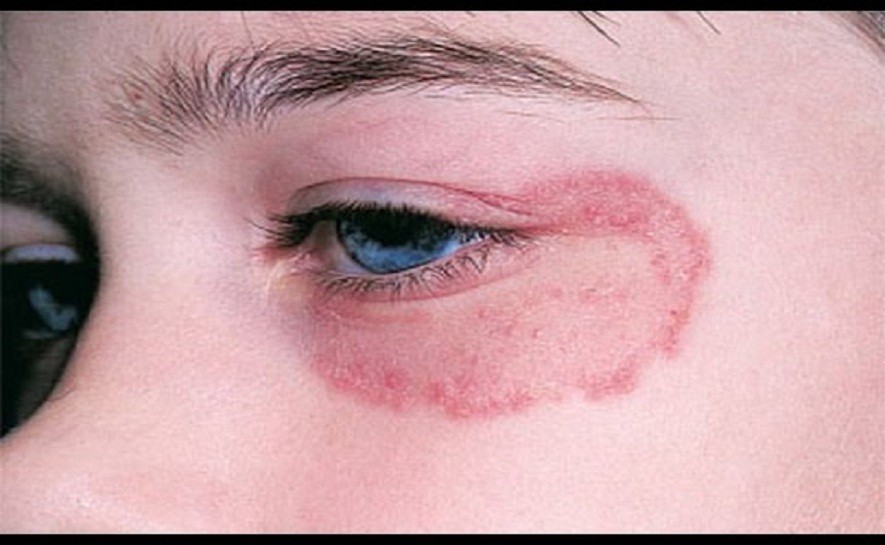Fungal Infection

Common fungal infection that affects superficial skin layer is called Tinea (popularly known as Ringworm). It is not caused by a worm. It is caused by a fungus, which live and spread on the upper layer of the skin and hair.
They grow best in warm, moist areas, such as body folds and contagious. It spreads when you have skin-to-skin contact with a person or animal that has it. It can also spread when you share things like towels or clothing. Tinea occurs in people of all ages.
Tinea of the skin usually causes itchy rash, shape of a ring a small area of infected skin tends to spread outwards. It typically develops into a circular, red, inflamed patch of skin. The outer edge is more inflamed with scaling than the paler centre.
Tinea of the foot looks like athlete's foot. The skin on the palm of the hand gets thick, dry, and scaly. Skin between the fingers may be moist and have open sores.
If you have a ring-shaped rash, you are likely to have tinea. Your dermatologist will be able to collect the scrapings from the rash under a microscope to check for the fungus.
Treatment with topical antifungal cream or oral antifungal tablets responds well. Your rash may clear up soon after you start treatment, but it’s important to keep use the cream for up to four weeks. This will prevent the recurrence of fungal infection. If the cream doesn't work, your doctor can prescribe pills that will kill the fungus.
Prevention of fungal infection:
- Don't share clothing or towels.
- Wear slippers or sandals in locker rooms and public bathing areas.
- Wear loose-fitting cotton clothing. Change your socks and underwear at least once a day.
- Keep your skin clean and dry. Always dry yourself completely after showers or baths.
You do not need to stay off work or school once treatment has started. To prevent passing on the infection, do not share towels. Also, try not to scratch the rash, as this may spread the fungus to other areas of your body. If you or someone in your family has symptoms, it is important to treat other family members.
Frequently Asked Questions
Que - 1 : What is Ring worm?
Ans: It is called Tinea infection caused by fungus. It can occur on any part of skin, hair and nails associated with itching.
Que - 2 : Are fungal infections contagious?
Ans: Yes, like virus and bacteria, fungal infections are contagious. They can spread from sharing clothing, combs and footwear.
Que - 3 : Who are at risk of developing fungal infection?
Ans: Unhygienic personal habits, underlying medical conditions such as diabetes and patients on chemotherapy/HIV-AIDS.
Que - 4 : Can I use preparations advertised in the market?
Ans: No, various preparations are in the market that claims to be effective for fungus. However these preparations can cause irritation therefore consult your nearest dermatologist who will advise suitable antifungal preparations like clotrimazle, ketoconazole, terbinafine etc. that are safer and effective.
Que - 5 : How long do I need to apply these antifungal preparations?
Ans: The treatment of psoriasis should be individualized and depends on patient and disease factors. Treatment is concerned with control rather than cure. Psoriasis can be managed with sustained judicious use of various treatments.
Que - 6 : Any alternative treatments exists that can cure psoriasis?
Ans: Ideally antifungal preparations are to be used for 3–4 weeks. However it has to be used for longer duration when fungus affects the hair and nails. Consult your nearest dermatologist who can advise on appropriate antifungal preparation and its duration of use.